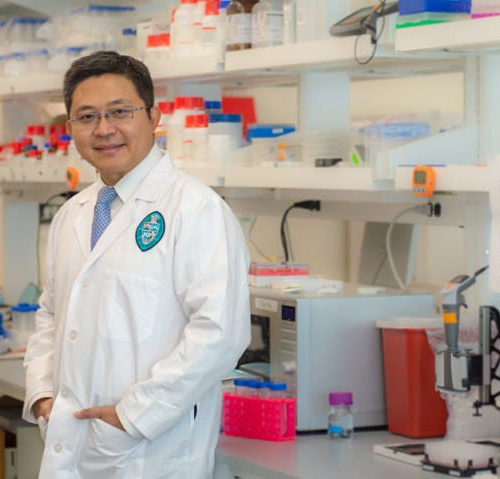Led by Tony Hu, the Weatherhead Presidential Chair in Biotechnology Innovation at Tulane University School of Medicine, researchers at Tulane, Baylor College of Medicine and NanoPin Technologies, Inc. are now developing a rapid, reliable and highly specific test to allow rapid diagnosis of all forms of Tuberculosis (TB), the leading worldwide cause of death from...
Tag: <span>Tuberculosis</span>
Modified tuberculosis vaccine as a therapy for bladder cancer
by Markus Berninger, Max Planck Society The human immune system can recognize and eliminate not only germs but also cancer cells. This is why treatments with weakened germs can help the immune system in its fight against cancer. Researchers at the Max Planck Institute for Infection Biology in Berlin have genetically modified the tuberculosis vaccine...
Preventing tuberculosis: A big drug price cut paves the way for global scale-up
by Gavin Churchyard, The Conversation Lengthy negotiations ended in good news recently when the price of rifapentine, a lifesaving antibiotic, was marked down by 66% by its manufacturer Sanofi. When combined with another antibiotic (isoniazid), rifapentine can prevent tuberculosis (TB) disease. The move was announced at the Union World Conference on Lung Health in October...
Scientists discover how tuberculosis puts the brakes on immune engines
by Thomas Deane, Trinity College Dublin Scientists from Trinity have discovered both how TB puts the brakes on our immune engines and how we can kick-start those engines back into gear—providing hope that improved treatment options could soon be on the horizon. Although ancient, TB is still the world’s deadliest infectious disease. While it is...
Immune System Targets Vitamin B12 Pathway to Neutralize Tuberculosis Bacteria
Close to 1.8 billion people worldwide are infected with Mycobacterium tuberculosis (Mtb), the common and occasionally deadly bacterium that causes millions of cases of tuberculosis each year. The bacteria, having coevolved with humans over millennia, have devised ways of hijacking nutrients from its human host for its own benefit. Humans have equally complex ways of...
Anti-arthritis drug also stops tuberculosis bacillus from multiplying in blood stem cells
KU LEUVEN Immunologist Johan Van Weyenbergh (KU Leuven) and his Belgian-Brazilian colleagues have shown that a drug used to fight arthritis also stops the process that allows the tuberculosis bacillus to infect and hijack blood stem cells. Tuberculosis (TB) may affect any part of the body, but the spread of the disease might start in the bone marrow. Immunologists from KU Leuven and Brazil have shown that the...
The 10-cent tuberculosis test that’s saving lives
by Layne Cameron, Evangelyn Alocilja, Michigan State University News of a cure for the deadliest strain of tuberculosis is making headlines around the world. However, before treatment can begin, TB must first be diagnosed. Early detection has been a serious challenge for those suffering at various stages of this epidemic. Until now. A colorimetric biosensing...
New blood test for human tuberculosis may also identify people at most risk
by National Institute for Health Research A new study conducted by researchers in Leicester and Nottingham has shown the potential for a new blood test to not only diagnose human tuberculosis (TB) but also identify those at most risk of developing the disease, according to findings published in medical journal Clinical Infectious Diseases. Despite recent reductions,...
Smartphone app allows tuberculosis patients to visit doctor’s office less frequently
Tuberculosis is a terrible lung disease, which kills thousands of people every year. We do have effective treatments, however, which prevent death and allow getting rid of the infection. But the treatment only works if you are receiving it. A new UCL-led study has found that patients with tuberculosis are more likely to continue their drug treatment if they are...
South Asians at risk for tuberculosis often are not tested
Many South Asian immigrants from countries where tuberculosis (TB) is common do not get tested even though they are at high risk for developing the disease, according to a recent study by Rutgers University and St. Peter’s University Hospital. canning electron micrograph of Mycobacterium tuberculosis bacteria, which cause TB. Credit: NIAID Tuberculosis, which mainly affects...

